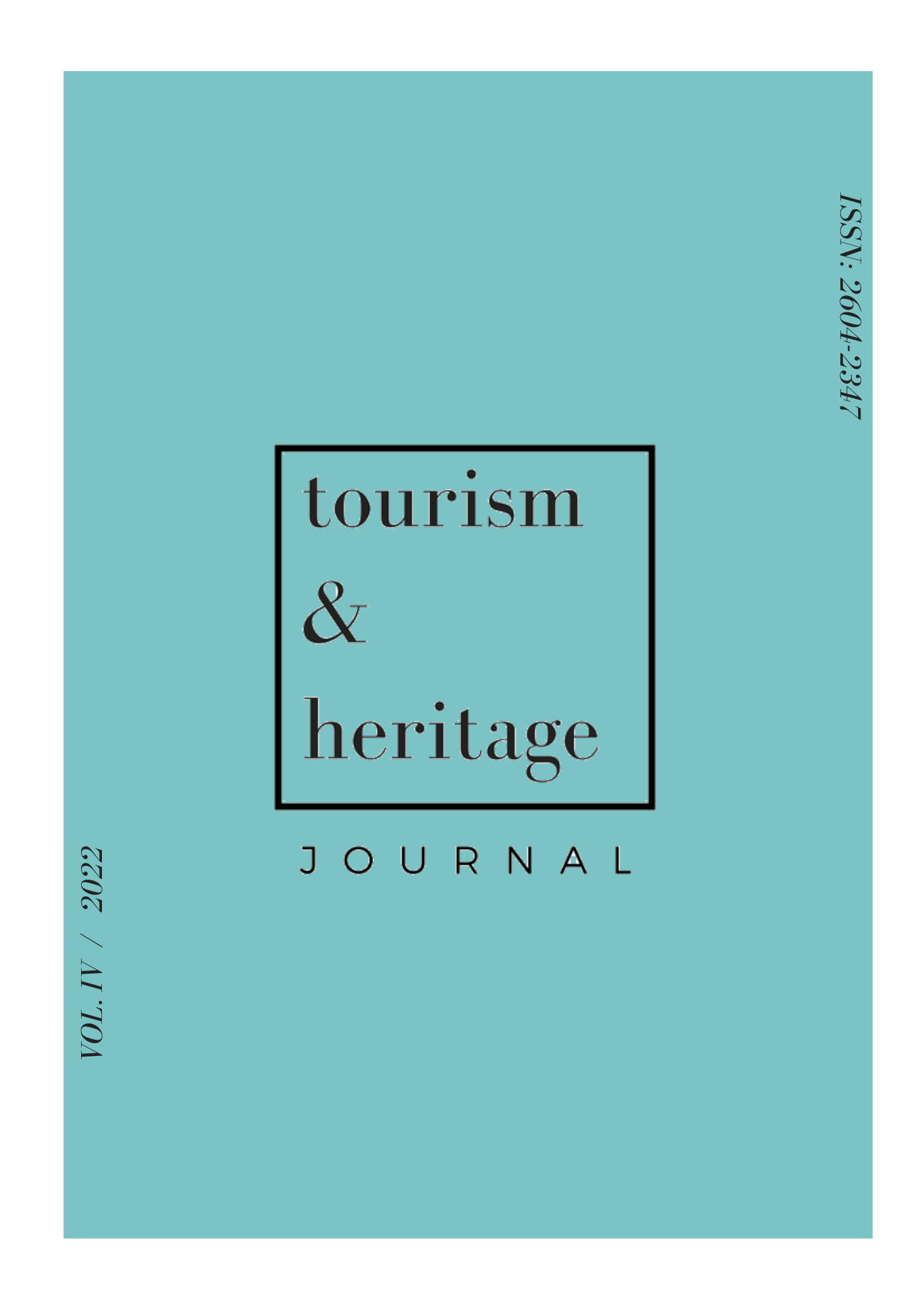Holocaust tourism: education or exploitation?
DOI:
https://doi.org/10.1344/THJ.2022.4.3Palabras clave:
Berlin, dark tourism, education, exploitation, Holocaust tourismResumen
The purpose of this research study is to investigate the ethics of holocaust tourism as a niche market which is becoming very commercialised due to the growing demand for such activities at certain locations and to examine the motivating factors for tourists visiting these destinations. Holocaust sites, a number of which were commissioned for memorial after the liberation during World War II to memorialise those lost and act as an educational resource. The main aim of this research is to explore whether holocaust tourism can be seen as education or exploitation. This will be investigated through a site visit to a holocaust tourism destination in Germany (Memorial to the Murdered Jews of Europe, Berlin) and a survey to identify those who engage in holocaust tourism, their motivations for doing so, and the outcome of their visits. Finally, this research study will provide results on the ethics of holocaust tourism and its educational value through a review of the academic research as well as the opinions of those who have or will engage in holocaust tourism. One of the main conclusions is that both primary participants and secondary authors spoke of how when visiting these sites, you create a connection to the destination and the sense of what occurred at the location is undeniable.
Citas
Anne Frank House. (2019). Annual Report 2018. Anne Frank House Amsterdam. Available at: https://www.annefrank.org/en/about-us/annual-report-2018/ (Accessed 26 October 2021).
Arjona, M. F. (2018). Socio-environmental and legal issues in tourism. e-book Oakville: Society publishing.
BBC Bitesize. (2021). Pilgrimage, Yad Vashem. Available at: https://www.bbc.co.uk/bitesize/guides/zgg9mp3/revision/2 (Accessed 26 October 2021).
Business Ethics (2021). Business Ethics. [Online] Available at: https://acortar.link/VSK5lJ [Accessed 30 November 2021].
Business Insider (2017). Genocides still going on today. Available at: https://www.businessinsider.com/genocides-still-going-on-today-bosnia-2017-11?r=USandIR=T (Accessed 26 October 2021).
Cohen, E.H. (2011). Educational dark tourism at an in pupulo site: The Holocaust museum in Jerusalem. Annals of tourism research, 38(1), 193-202. https://doi.org/10.1016/j.annals.2010.08.003
Fallon, C.J. (2009). Exploitation. Edinburgh: Chambers Harrap Publishers LTD.
Bampton, R., & Cowton, C. J. (2002). The E-interview. Qualitative Social Research Forum, 3(2), 1-12. https://doi.org/10.17169/fqs-3.2.848
European Union Agency for Fundamental Rights (2011). Human rights education at holocaust sites across the European Union. Publications Office of the EU.
Foley, M., & Lennon, J. J. (1996). JFK and dark tourism: a fascination with assassination. International Journal of Heritage Studies, 2(4), 198-211. https://doi.org/10.1080/13527259608722175
Gov.ie (2020). EU recommendation on travel for essential purpose. [Online] Available at: https://www.gov.ie/en/publication/8318d-eu-council-recommendation-and-travel-for-an-essential-purpose/?referrer=http://www.gov.ie/EUEssentialTravel/ [Accessed 21 December 2021].
Hancock, E. (2016). Keeping an eye human behavior. University of Connecticut. [Online] Available at: https://today.uconn.edu/2016/02/keeping-an-eye-on-human-behavior/## [Accessed 01 January 2022].
Heřmanová, E., & Abrhám J. (2015). Holocaust tourism as a part of the dark tourism. Czech Journal of Social Sciences, Business and Economics, 4(1). 16-33. https://doi.org/10.24984/cjssbe.2015.4.1.2
History (2021). The Holocaust. Available at: https://www.history.com/topics/world-war-ii/the-holocaust (Accessed: 26 October 21).
Honan, H. (2017). The literary representation of World War II childhood. Cambridge Scholars Publishing. ISBN: 9781443895927.
Insights, F. M. (2022). Educational tourism: Sector outlook https://www.marketwatch.com/press-release/educational-tourism-market-in-2022-research-insights-with-upcoming-trends-competitive-analysis-opportunities-forecast-to-2022-2030-2022-09-30. (Accessed 26 October 21).
Isaac, R. K. (2021). Editorial special issue in Dark tourism, Journal of Heritage Tourism, 16(4), 363-366. https://doi.org/10.1080/1743873X.2021.1920963
Kranz, M. (2017). 5 genocides that are still going on today. https://www.businessinsider.com/genocides-still-going-on-today-bosnia-2017-11?r=US&IR=T. (Accessed: 28 October 21).
Longerich, P. (2020). Holocaust: The Nazi Persecution and Murder of the Jews. OUP Oxford.
Lennon, J., & Foley, M. (2000). Dark tourism: The attraction of death and disaster. Continuum.
Light, D. (2017). Progress in dark tourism and thanatourism research: An uneasy relationship Tourism Management, 61, 275-301. https://doi.org/10.1016/j.tourman.2017.01.011
Lowe, C., & Zemliansky, C. (2011). Readings on writings. Parlor Press LLC.
Lipstadt, D. E. (2016). Holocaust: An American understanding. Rutgers University Press (Key Words in Jewish Studies).
Memorial of murdered Jews of Holocaust (2022). Memorial of murdered Jews of Holocaust. [Online] Available at: https://www.stiftung-denkmal.de/category/aktuelles/?httpstatus=404 [Accessed 01 January 2022].
Mezias, S., & Schloderer, F. (2021). Surviving the commercialization gap: Identities, forms, and the emergence of new industries. INSEAD Working Paper No. 2021/37/EFE.
https://ssrn.com/abstract=3890639 or http://dx.doi.org/10.2139/ssrn.3890639.
Mirriam Webster (2021). Exploitation definition. [Online] Available at: https://www.merriam-webster.com/dictionary/exploitation [Accessed 30 November 2021].
Reynolds, D. P. (2018). Postcards from Auschwitz: Holocaust Tourism and the Meaning of Remembrance. NYU Press. https://doi.org/10.2307/j.ctvfb6z8d
Sawyer, H. E. (2018). I am the dark tourist: travels to the darkest sites on Earth. Headpress. Available at: https://search.ebscohost.com/login.aspx?direct=trueandAuthType=ssoanddb=e000xwwandAN=1905538andscope=site (Accessed: 26 October 2021).
Sharpley, R., & Stone, P.J. (2009). The darker side of travel: the theory and practice of dark tourism. Channel View.
Schneider, A., Anghel-Vlad, S., Negrut, L., Gheorghe, G,. & Para, L. (2021). Tourists’ motivations for visiting dark tourism sites. Case of Romania. The Annals of the University of Oredea.
Economic sciences, 1(1), 140-150. https://doi.org/10.47535/1991AUOES30(1)014
Sherrin, H. (2021). History hit. [Online] Available at: https://www.historyhit.com/guides/holocaust-sites-museums-and-memorials/ [Accessed 30 November 2021].
Tal, T., & Morag, O. (2009). Reflective practice as a means for preparing to teach outdoors in an ecological garden. Journal of Science Teacher Education, 20(3), 245-262. https://www.jstor.org/stable/43156506.
United States Holocaust Memorial Museum (2022). United States Holocaust Memorial Museum. [Online] Available at: https://encyclopedia.ushmm.org/content/en/article/introduction-to-the-holocaust [Accessed 16 February 2022].
United States Holocaust Museum (2021). Holocaust Encyclopedia. [Online] Available at: https://encyclopedia.ushmm.org/content/en/article/anne-frank-biography [Accessed 30 November 2021].
Weaver, D. (2005). Sustainable Tourism (1st ed.). Routledge. https://doi.org/10.4324/9780080474526
Willis, E. (2014). Theatricality, dark tourism and spectatorship: Absent others. Springer.
World Jewish Congress (2019). Communities. Available at: https://www.worldjewishcongress.org/en/about/communities (Accessed 20 October 2021).
Descargas
Publicado
Cómo citar
Número
Sección
Licencia
Derechos de autor 2022 Noelle O'Connor, Amanda Dawson, Sinéad O'Leary

Esta obra está bajo una licencia internacional Creative Commons Atribución 4.0.
El/la autor/a que publica en esta revista está de acuerdo con los términos siguientes:- El/la autor/a conserva los derechos de autoría y otorga a la revista el derecho de primera publicación de la obra.
- Los textos se difundirán con la licencia de reconocimiento de Creative Commons que permite compartir la obra con terceros, siempre que éstos reconozcan su autoría, su publicación inicial en esta revista y las condiciones de la licencia.




